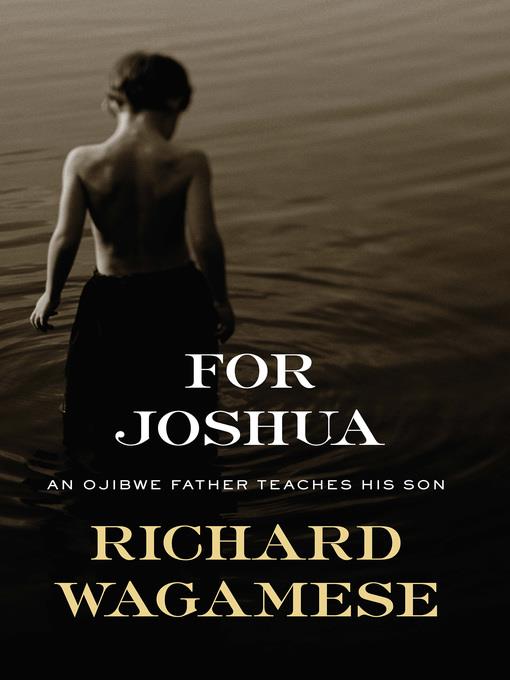
For Joshua
An Ojibwe Father Teaches His Son
کتاب های مرتبط
- اطلاعات
- نقد و بررسی
- دیدگاه کاربران
نقد و بررسی

February 28, 2020
Wagamese (1955-2017) was a well-known Ojibwe writer, and author of several acclaimed works of nonfiction and fiction, including Indian Horse. This final work is a memoir written to his estranged son, about his experiences growing up in foster homes after being abandoned by his family, the challenges of his own decisions, and finding his voice as an Ojibwe writer. These affecting essays are beautifully written, and his experiences resonate on many levels, from the little boy who is experiencing loneliness to the young adult longing to find his place in the world to the adult he became before his death at age 61. Known primarily in Canada, Wagamese gathers the formative experiences, both good and bad, that influenced him and that he wanted to pass onto his son, who was then six years old. VERDICT A well-written, introspective book on fatherhood and loss that will especially interest readers and students of First Nations life and literature.--John Sandstrom, New Mexico State Univ. Lib., Las Cruces
Copyright 2020 Library Journal, LLC Used with permission.

February 1, 2020
An Ojibwa author fulfills his obligation by passing down his life's wisdom to his son. Before his death in 2017, Wagamese (Starlight, 2018, etc.) had earned renown in his native Canada for his memoirs and novels. He had also completed this book for his son, then 6 years old. As he explains to the son who barely knew him, "drinking is why we are separated. That's the plain and simple truth of it. I was a drunk and never faced the truth about myself--that I was a drunk. Booze owned me." The author then proceeds to revisit a childhood of foster homes and adoption, of feeling like he never fit in or belonged, and of running away to find comfort in transient street life and a community of sorts among others who lived a life of petty crime to subsidize their various addictions. He writes about his search for identity in Ojibwa traditions and what he later considered the misguided "influence of militant Native groups like the American Indian Movement." "I became racist in my thinking," he writes, "and it was easy to blame the white man and society for my ordeals. In fact, it made more sense than anything I'd thought of or heard before." Much of the narrative follows Wagamese's three days in the wilderness, with only a blanket, at the behest of a recovering alcoholic who thought Ojibwa teachings could help his friend in recovery. Only after he finished was the author told that this had been his "Vision Quest." The author mixes reflections on the course of his life with dreams he had during those three nights along with Native legends and traditions, illuminating the significance of the pipe and the drum. "As Ojibway men, we are taught that it is the father's responsibility to introduce our children to the world," he writes to his son, and this posthumous publication is part of the legacy he passes along. A sturdy book of traditional wisdom and prescriptions for recovery.
COPYRIGHT(2020) Kirkus Reviews, ALL RIGHTS RESERVED.

























دیدگاه کاربران